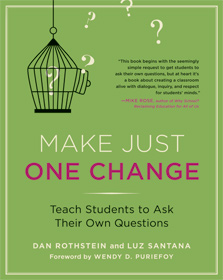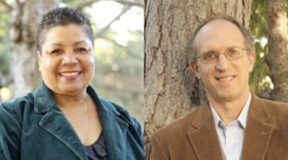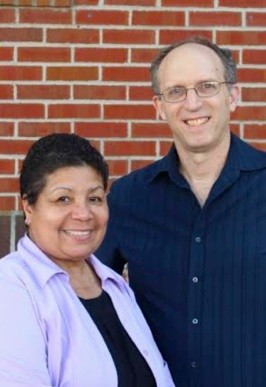The Right Question Strategy teaches two foundational skills:
- How to formulate questions (taught via our Question Formulation Technique)
- How to focus on decisions and use specific criteria for accountable decision-making (by using our Framework for Accountable Decision-Making)
Despite their significance, these skills are rarely explicitly taught. We have designed simple methods to help individuals learn them and then teach others.
Learn the Strategy
We currently provide access to the Question Formulation Technique for free. Once, you are a member of the free Educator’s Network, you can gain access to Experiencing the QFT, which provides an overview of that teaching strategy. There are also handouts and other resources available that provide a one – page overview of the strategy.
Share the Strategy
The Right Question Strategy — in Education and Beyond
- Women in an adult literacy program in New Hampshire learn to advocate for themselves and secure better job training opportunities through their local welfare office.
- Patients in community health centers in the Bronx and Brooklyn, NY learn to ask questions and participate in decisions made during their encounters with health care providers
- Immigrant parents in New Mexico begin to ask questions about how to help prevent violence in their children’s schools and eventually organizing into a powerful local force to improve opportunities and outcomes for all children.
- Sugar cane plantation workers in Hawaii, about to lose the sole source of livelihood, learn to ask questions and participate in decisions about how to use the land for different purposes, supporting small businesses and begin to have a say in decisions about how company-owned housing will be allocated.
- Residents in a homeless shelter in Louisville,KY, discover the value of having a say in the school assignment process and become effective advocates for their children entering middle schools across the city.
- Teachers in England tweet about the changes they see in their students. The teachers read an article about the Question Formulation Technique and immediately implemented it in their classrooms and found their students more engaged and stimulated to think in new ways than they had ever seen before.



